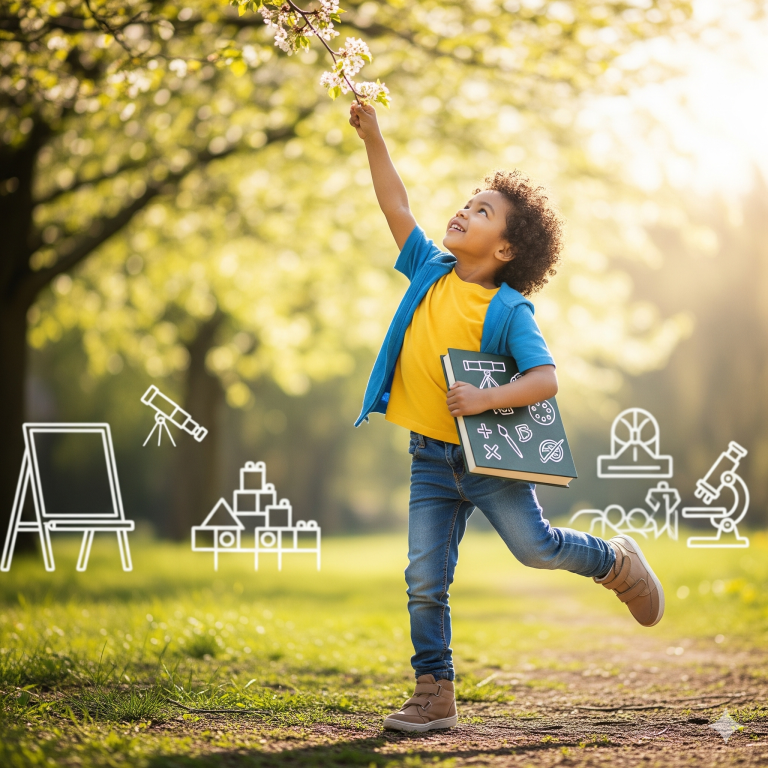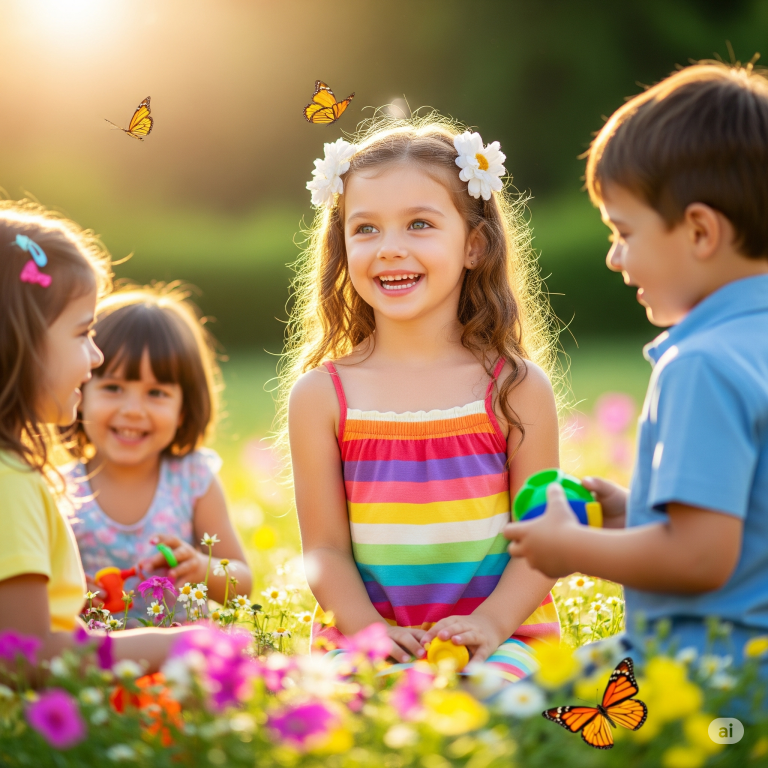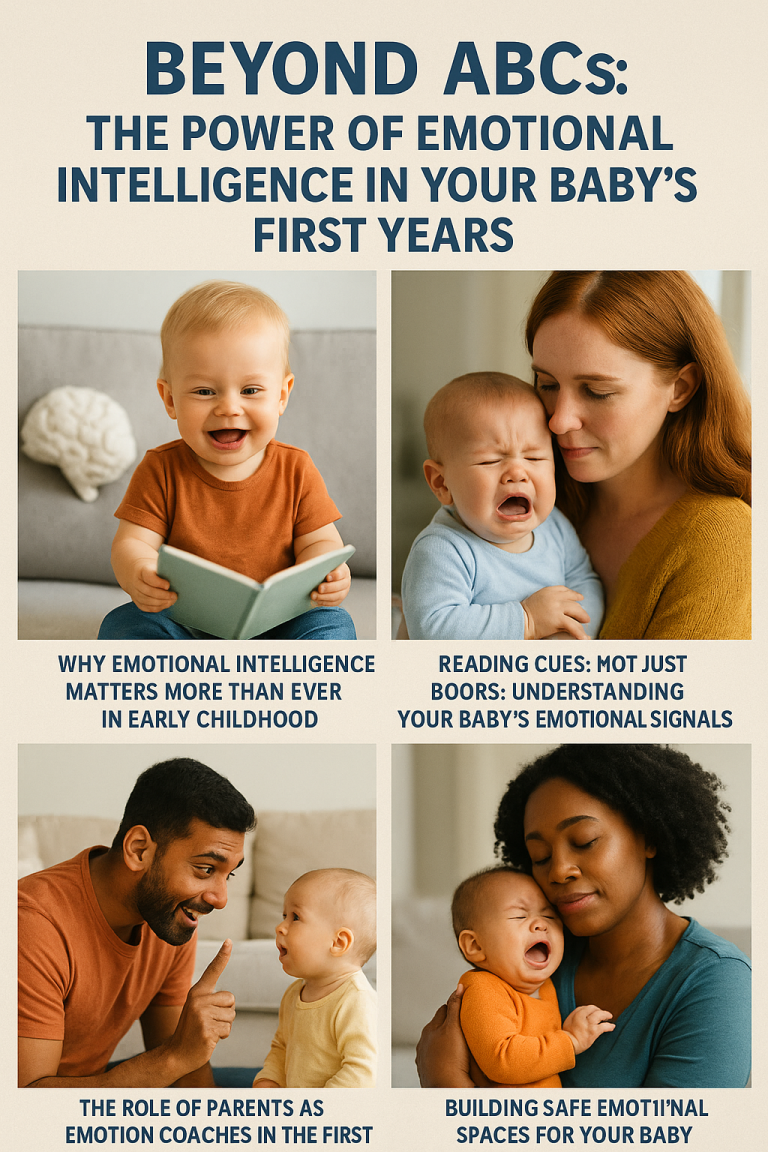Parenting, as we know it, is evolving at a rapid pace. With each passing year, the way we care for our children, shape their minds, and foster their well-being is being reshaped by a variety of technological, social, and cultural shifts. As we approach the year 2025, new challenges and opportunities will emerge for parents, caregivers, and the society at large. From AI-driven innovations to a growing awareness of sustainability and emotional health, the landscape of parenting is on the cusp of something extraordinary. Here’s a deep dive into the major trends that are redefining parenthood and child-rearing in the near future.
AI-Powered Parenthood: Smart Tech & Personalized Care
As artificial intelligence continues to evolve, it’s no longer a distant concept but an integral part of our daily lives—especially in the realm of parenting. AI-Powered Parenthood is set to revolutionize the way parents interact with their children, offering personalized care like never before. From intelligent baby monitors that track a child’s sleep patterns to AI-driven apps that monitor developmental milestones, the possibilities are endless.
The concept of personalized parenting is gaining momentum as parents strive to provide the best for their children. AI algorithms, now embedded in a multitude of devices, can monitor a child’s health, behavior, and even emotional needs. These devices can track feeding times, diaper changes, and offer insights into whether a baby is hitting key developmental milestones, all with remarkable accuracy. Imagine an AI-powered tool that learns a baby’s sleep cycle and adapts to their needs, or a smart thermometer that alerts parents to changes in their child’s body temperature before they even realize there’s a fever.
This wave of innovation also extends to smart tech in homes. From voice-activated devices that can entertain and educate to intelligent toys that evolve with a child’s learning pace, the use of personalized care is only expected to grow. However, while these innovations offer convenience, they also present new concerns regarding privacy, screen time, and the potential for over-reliance on technology. Striking the right balance between tech-driven convenience and the need for human connection will be one of the defining challenges for parents moving forward.
The Conscious Child: Sustainable Living & Ethical Consumption
The conversation surrounding sustainability has permeated almost every facet of society, and parenting is no exception. In 2025, we’ll see an even stronger push toward raising children in environments that are both eco-friendly and conscious of ethical choices. The Conscious Child is not just a trend but a reflection of a growing societal understanding that the future of the planet is intertwined with the values we instill in the next generation.
Sustainable living has found its way into everything from organic baby food to eco-conscious diapers and clothing. Parents are increasingly turning to products that are cruelty-free, made from recycled materials, or come with minimal environmental impact. The idea of raising a child with an acute awareness of environmental impact is shifting the conversation from mere convenience to long-term stewardship of the Earth. As children begin to understand the implications of their consumption, they will carry these values into adulthood, shaping the future of sustainable practices in everyday life.
The focus on ethical consumption is driving a new market of eco-friendly baby gear, ranging from biodegradable toys to organic cotton clothes and bedding. Even the food industry is becoming more transparent, with more brands offering organic, non-GMO, and locally sourced baby foods. Parents are not only looking for products that are safe for their children, but also for those that contribute to a healthier planet. In turn, children are being raised to recognize the value of sustainability, making conscious decisions about the world they will inherit.
Digital Well-Being: Navigating Screen Time & Online Safety
The rise of digital media has created a complex landscape for modern parenting. While technology has provided immense benefits, it has also raised significant concerns around screen time, online safety, and its impact on children’s development. By 2025, the challenges surrounding digital well-being will have reached new heights, demanding an evolving approach to how parents navigate these waters.
The pervasive influence of screens on daily life, from smartphones to tablets, means that children are spending increasing amounts of time in front of devices. The challenge for parents will be striking a healthy balance between the positive uses of technology—such as educational apps and virtual learning tools—and the potential dangers of overuse. The development of digital well-being initiatives that focus on healthy screen time habits, boundaries, and time management is a growing trend. Tools that allow parents to monitor, limit, and control screen time are already in place, and by 2025, these technologies will likely become even more sophisticated.
However, with the increase in screen use comes an equal need for online safety. The internet, while a valuable resource, also harbors potential dangers such as cyberbullying, inappropriate content, and privacy violations. As children grow more adept at navigating the digital world, parents must remain vigilant in educating them about the importance of online safety. By 2025, a greater emphasis will be placed on teaching children how to protect their personal data, recognize online dangers, and practice responsible online behavior.
Moreover, mental and emotional resilience will be a focal point in this digital age, as parents will need to equip their children with the tools to cope with the pressures of social media and digital interactions. Raising children who can strike a balance between the digital world and real-world relationships will become an essential part of the parenting journey.
Redefining Family: Inclusive Structures & Diverse Parenting
The traditional family structure is undergoing a transformation, and this shift will continue to gain momentum in 2025. As society becomes more inclusive and diverse, redefining family is a core theme in modern parenting. Families are no longer defined by a one-size-fits-all mold. Single-parent households, same-sex parents, blended families, and multi-generational households are becoming increasingly common, and the definition of “family” is broadening to reflect this diversity.
One of the most significant aspects of inclusive structures is the growing acceptance of varied parenting styles. No longer bound by rigid gender roles or societal expectations, families in 2025 will likely be built around the needs and preferences of the parents and children rather than traditional norms. This shift allows for greater flexibility and inclusion, ensuring that all types of families are celebrated and supported.
Furthermore, as diversity becomes the cornerstone of modern society, diverse parenting will be increasingly embraced. Parents will have more access to support systems, communities, and resources that acknowledge and celebrate a wide array of cultural, ethnic, and gender identities. This change will help cultivate an environment where children are encouraged to embrace and appreciate diversity, both within their own families and in the world at large.
The evolving definitions of family will also lead to more conversations about the importance of inclusivity and the need for children to grow up in environments where differences are acknowledged and respected. Whether through the development of inclusive curricula in schools or the representation of diverse family structures in media, the goal is to create a world where all families feel seen and valued.
Mental & Emotional Resilience: Nurturing Healthy Minds
As we enter 2025, it’s becoming clearer that emotional well-being is just as important as physical health. The pressures of modern life, coupled with the rise of digital influence, have made it even more critical to focus on mental & emotional resilience in children. Building strong mental health habits from a young age is essential for coping with stress, anxiety, and the challenges that life inevitably brings.
In the coming years, there will be a greater emphasis on nurturing healthy minds through emotional intelligence education. Schools, parents, and caregivers will work together to equip children with the tools they need to manage their emotions, understand their feelings, and communicate effectively. Emotional resilience will no longer be a luxury but a necessity, with techniques such as mindfulness, meditation, and stress management becoming commonplace in early childhood education.
Moreover, the conversation around mental health will continue to be de-stigmatized, allowing parents to seek support and resources without fear of judgment. Children will be raised with a strong foundation of self-awareness and empathy, fostering emotional intelligence that will serve them throughout their lives.
In addition to emotional resilience, fostering social and interpersonal skills will be key. As the digital age has reshaped how children interact with one another, ensuring that children have the skills to maintain healthy, real-life relationships will become more important than ever.
Conclusion
Parenthood in 2025 promises to be an exciting, dynamic experience. As the world continues to evolve, so too will the ways in which we raise our children. From the rise of AI-Powered Parenthood that blends smart technology with personalized care to a deeper understanding of the Conscious Child who is grounded in sustainability and ethical living, the future of parenting is rich with possibilities. Alongside this, the challenges of managing digital well-being and fostering emotional resilience in a tech-driven world will remain at the forefront of parental concerns.
Equally important is the shift in how we define family—embracing inclusive structures and diverse parenting methods that reflect the multifaceted world our children are growing up in. Above all, the next wave of parenting is about nurturing children who are not only intelligent but also emotionally healthy, compassionate, and capable of making informed decisions in an ever-changing world.
As we look to the future, one thing is certain: the role of the parent is evolving, and with it, the entire approach to raising the next generation.




